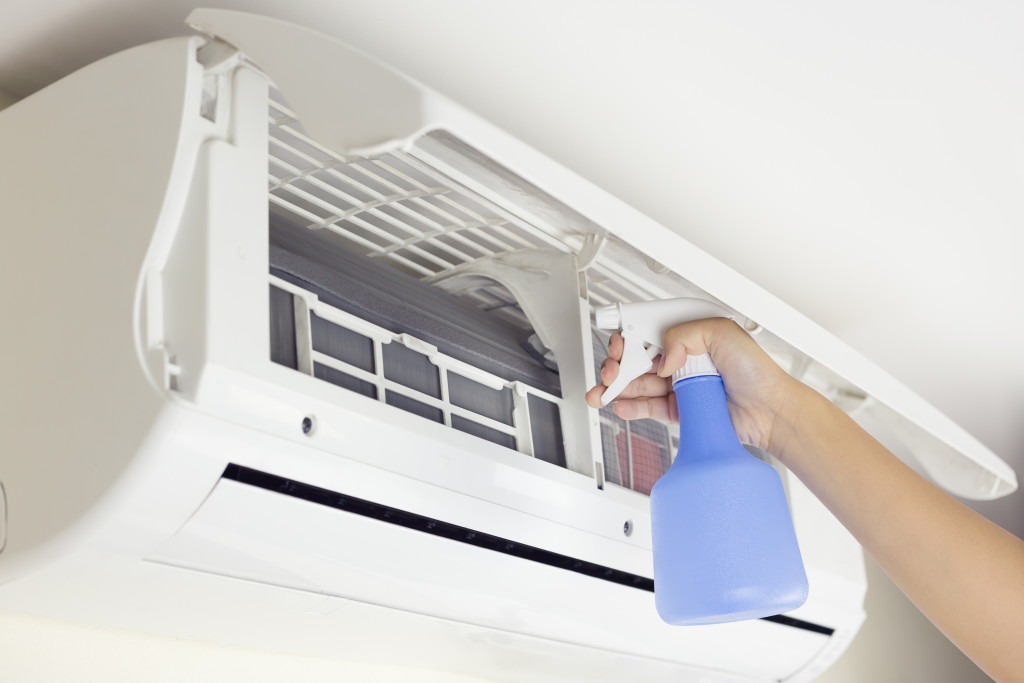You are probably aware of how much your heating, ventilation, and air conditioning or HVAC system makes your life at home comfortable. It prevents you from sweating buckets during summer and turning into a human-shaped block of ice during the winter.
Besides keeping you warm and cold during appropriate times, your HVAC system also helps make the air quality inside your home better.
As seasons change, your friendly HVAC system gets older and experiences more wear because the intensity of the heat or the cold is not kept on a consistent level. Therefore, your HVAC has to adjust to keep you comfortable.
How much does an HVAC system cost?
Having an HVAC installed at home can cost you from $6,820 to $12,350 on average. The pricing depends on the manufacturers you choose to rely on for your HVAC system’s essential parts.
On top of that, you have to pay for HVAC testing, adjusting, and balancing services to ensure that your HVAC system works well.
One downside about having an HVAC system at home is how much maintenance it needs. So much goes on in our lives that we forget the most basic things we used at home and often neglect their condition. We do not even notice something so important is missing until we reap the effects.
After realizing that HVAC systems are not the cheapest technologies you need to live comfortably, you would want to make the most out of the money you paid for them.
Here are some tips to keep in hand when it comes to making the most out of your HVAC buck:
1. Get the equipment size right
Depending on the area of your home, you would want to get heating and cooling equipment that is right for the size of where you will be installing it. It will cost you less to opt for smaller ones that are just enough for your space. If you install them to serve an area beyond their capacity, you will risk buying new ones earlier than expected.
A piece of equipment too small for the work they should be doing would render more effort than ideal, which will definitely shorten their lifespan.
On the other side of the coin, having heating and cooling equipment too big for your place would be inefficient in terms of how much you will be paying for the equipment, maintenance, and electric bills.
Having equipment too big for your space will not allow you to utilize the capacity of the equipment you paid for.
2. Monitor the state of your filters

Filters are the main pathways in and out of an HVAC system. Whatever cooling or heating they provide, you pass through their filters. HVAC system filters work with a lot of bacteria and air particles that are harmful.
By replacing your filters regularly, you can rely on your HVAC system to blow out clean and fresh air. Filter maintenance will also help your HVAC serve you better and longer.
Another thing is that clogged filters are costly to repair. They are highly workable when they only need replacing. But if the filtering system itself encounters problems–you would see yourself spending around $4,820 to $9,350 to get them fixed.
3. Use the system wisely
Relying purely on maintenance services will not prolong the life of your HVAC system. Instead, what you also need to do is practice proper use of the system.
To ensure that your HVAC system lasts longer, make sure to do the following:
- Learn about efficiency ratings.
- Set limits in your thermostat.
- Use a programmable thermostat.
- Reduce heat generation inside your home.
- Seal places where air can leak.
Efficiency ratings will tell you how good your HVAC equipment is at utilizing the fuel that runs it. Having a system with low fuel economy will lead you to a costly HVAC system run.
Setting your thermostat to comfortable temperatures will keep you comfortable without making your utility bill skyrocket. A programmable thermostat unit will allow you to control the temperature based on your preferences. You can even set maximum and minimum temperatures to ensure that temperature levels do not go to levels that make you uncomfortable.
When doing laundry, opt to dry wet clothes at night to reduce the heat produced by the dryer and consequently make the indoor temperature higher. This will put more strain on your HVAC system.
Lastly, keeping your windows free from air leaks will keep cool air from getting out during the summer. During the winter, no air leaks will keep the warmth indoors.
With these ideas in mind, you can rest assured that your HVAC system will be used to its maximum capacity.